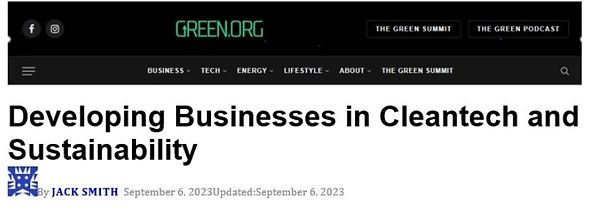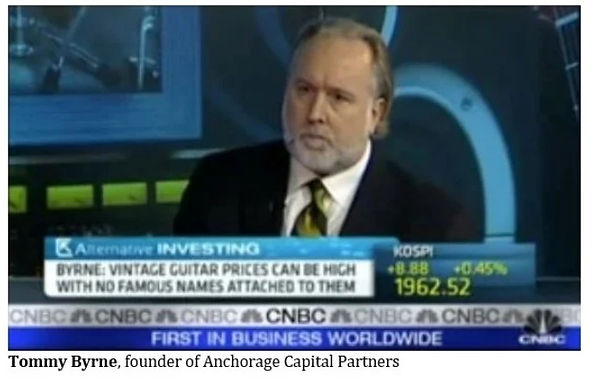Anchorage Capital Partners LLP
Innovative Strategies Creating Market Opportunities


GreenTech News
Green.org sat down with Tommy Byrne, founder of Anchorage Capital Partners, to share how he has built a career developing business in cleantech and sustainability. Tommy is responsible for managing Anchorage’s daily operation and has been directly involved with structuring, advising, and distributing global private equity deals over his 30+ years in the financial markets.
Tommy, thank you for being here. Tell us a little bit about your background.
I began my career in 1981 at Irving Trust Co., a very White Shoe International banking group, gobbled up by BONY in the ‘80s and then ultimately became part of modern-day BNY Mellon. The first one-third of my career on the Street, was primarily trading US Treasuries and international sovereign debt in one form or another. It wasn’t until I got recruited into a Private Equity role of a growing investment banking firm in the mid-1990s that I got my first real taste of developing businesses in the cleantech and sustainability arena.
What would you do with $1 billion dollars?
There are so many opportunities to develop important businesses when you have sole discretion over spending that type of investment capital. The first strategy would likely involve putting together a Cleantech Think Tank Venture Lab group to review the technologies in which we are already involved, to make sure they are all still cutting edge before making larger strategic investments in them. Then once set up, I would raise additional strategic partners and start a multi-stage private equity fund.
Secondly, I would expand my Guitar Company BJ & Byrne Guitars to maximize the use of Accoya® in our guitars. This is such a revolutionary technology that truly creates a sustainable hardwood resource, and its base technology has been around for over 75 years !
For fun and profit, regarding the Accoya® wood technology, I would also start a boat manufacturer to create classic looking leisure crafts with hybrid designs of boats from the mid-20th Century and modern day but using green energy technologies that are smaller and lighter to power them.
For profit, I would continue advising an Ed/Tech and live-streaming Gaming company called Zealot Interactive Inc., helping them to continue building their already extremely strong strategic partnerships in the music, media, and gaming industries. Though they don’t have a deep carbon footprint, they’re not in the cleantech club… but you did just give me $1 billion to play around with !
I’m also very intrigued with learning more about converting CO2 into food and other Bio-based products. With so many new clean technologies being developed these days, you could blow through $1 billion in a weekend.
Why do you think sustainability is such an important topic today?
Though I don’t consider myself a Green-Warrior, I do certainly understand the importance of creating a sustainable eco-system in whatever we do. But this has been a popular sentiment for decades and decades. I only think it has gotten to be a driving force in business recently, for the wrong reasons, Politics ! Forcing anything onto the public never ends well. For instance, trying to force electric vehicles into everyone’s lives by creating ridiculous mandates that make no sense and forcing super expensive products down the public’s throat, long before the products are truly sustainable is counterproductive.
But in the name of Politics, those who are meant to serve us, honorably, instead try to scare us into voting for them, while knowing that their ‘Green Energy’ solutions timelines are bogus. This type of political intervention disrupts the eco-system, in that it rushes an otherwise somewhat organic process that relies on testing, retesting, development, refining development, etc. and pushes the cart before the horse. In the end, you get some improvements, but the additional costs to the environment outweigh the advances it is meant to have achieved.
What do you envision your industry looking like in ten years?
ESG will have gone to the wayside as a mandated expectation and since the world hasn’t ended in a puff of smoke, investing in cleantech and sustainable technologies will become more profitable as business is allowed to choose its own lane to reach an optimal solution rather than listening to self-serving political influencers.
Tommy, thank you for sitting down with Green.org and sharing how you have been developing business in cleantech and sustainability.

